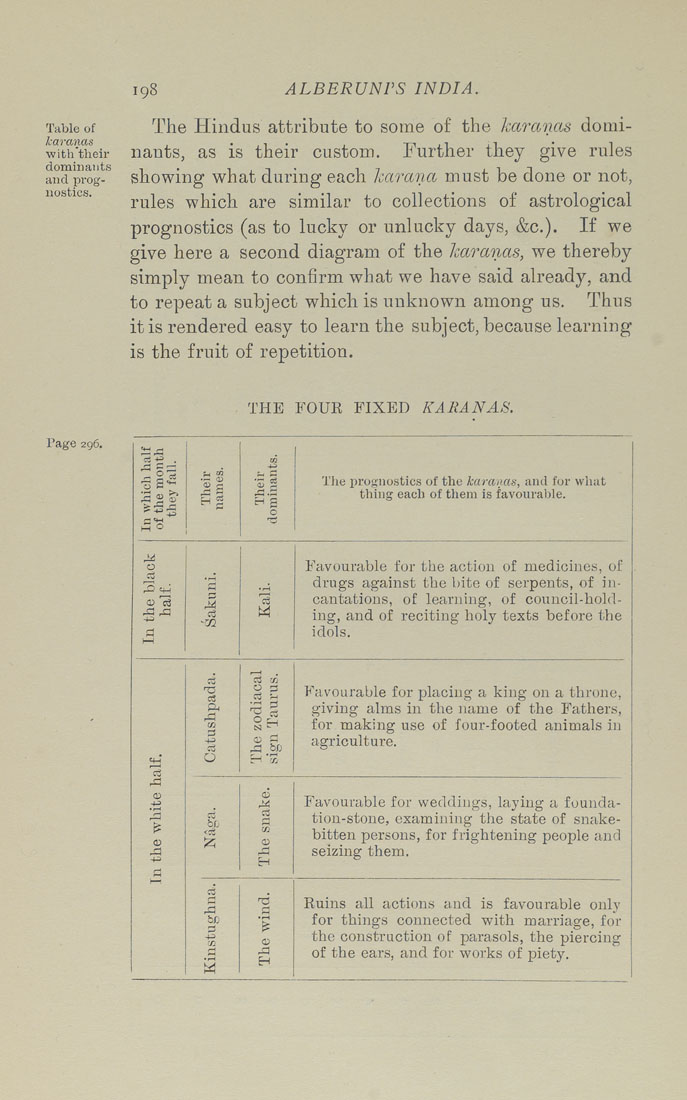198
ALBERUNTS INDIA.
Table of
karaiias
■with'their
donalnants
and prog¬
nostics.
The Hindus attribute to some of the karctncts domi¬
nants, as is their custom. Further they give rules
showing what during each karctria must be done or not,
rules which are similar to collections of astrological
prognostics (as to lucky or unlucky days, &c.). If we
give here a second diagram of the kctrancts, we thereby
simply mean to confirm what we have said already, and
to repeat a subject which is unknown among us. Thus
it is rendered easy to learn the subject, because learning
is the fruit of repetition.
THE FOUK FIXED KARANAS.
Page 296.
a.^
ci *^ .
'S C —
■^
-sis
■5 5
The prognostics of the karanas, and for what
In whi(
of the ;
they
Th.
domii
thing each of them is favourable.
0
Favourable for the action of medicines, of
3 ^-i
'S
drugs against the bite of serpents, of in¬
03 15
M
Ii
cantations, of learning, of council-hold¬
S '^
M
ing, and of reciting holy texts before the
d
idols.
hH
C3 (Tu
0 ^
Favourable for placing a king on a throne,
a
l§
giving alms in the name of the Fathers,
atusl
gH
for making use of four-footed animals in
CD a
agriculture.
'^-^
0
H '»
<V
OJ
Favourable for weddings, laying a founda¬
3
bL
cS
tion-stone, examining the state of snake-
^
bitten persons, for frightening people and
Xi
seizing them.
Tnt
H
ci
^
Ruins all actions and is favourable only
5C
'?
for things connected with marriage, for
-S
0
the construction of parasols, the piercing
.3
of the ears, and for works of piety.
|








